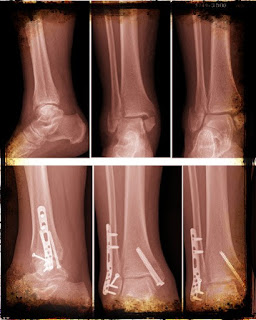About Me
This health blog contains the questions that I've been most
often asked by the patient facing surgery, his immediate
family or concerned relatives. The confrontation has
sometimes occurred at the bedside, often in a corridor
corner, but most frequently in the privacy of the consultation
room.
Over the years people have asked the same questions
so frequently that I can now usually anticipate, for any
disease, what concerns will be expressed. The queries
are unrelated to education, social status, and sophistication
in other areas. Susie O'Grady and the colonel's lady
share the same anxieties, fears and uncertainties about
the immediate decisions and the future results. I have,
therefore, presented the inquiries in the patients' own
words.
What patients are seeking is a concerned physician who has the technical knowledge to advise them about their disease, one who will also take "a few minutes" to discuss its effect on their work and family and whose experienced judgment may guide them in the necessary decisions.
The common denominator in all questions is the effort
to understand what has happened and what is going to
happen. The anxiety stems less from the presumed diagnosis
and the contemplated surgical assault than from
the uncertainty of the road to be traveled. "I wouldn't
worry if I knew at every step what was going on and
what I am to suspect." The patient's slip of the tongue
here was "suspect" for "expect." She revealed the source
of her anxiety. This stems not only from what is known
but also from what is feared.
The answers are based on my experience. I don't intend to make an amateur surgeon of the inquirer. I acknowledge that there may be acceptable alternative attitudes and methods. I often can not solve the particular problem presented by the senile, suspicious grandmother, the financially concerned business partner, and the until now alienated first wife or the neighbor whose doctor advises a different approach.
I hope that making these facts available will help provide a basis of understanding for decision making and for a realistic adjustment to the surgical experience.
Dr S.N White
dr.snwhite@gmail.com
What patients are seeking is a concerned physician who has the technical knowledge to advise them about their disease, one who will also take "a few minutes" to discuss its effect on their work and family and whose experienced judgment may guide them in the necessary decisions.
The answers are based on my experience. I don't intend to make an amateur surgeon of the inquirer. I acknowledge that there may be acceptable alternative attitudes and methods. I often can not solve the particular problem presented by the senile, suspicious grandmother, the financially concerned business partner, and the until now alienated first wife or the neighbor whose doctor advises a different approach.
I hope that making these facts available will help provide a basis of understanding for decision making and for a realistic adjustment to the surgical experience.
Dr S.N White
dr.snwhite@gmail.com


















Comments
Post a Comment